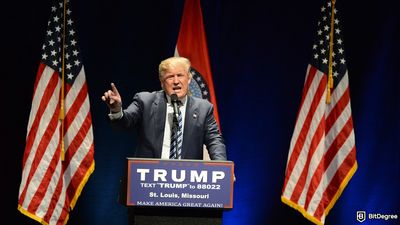DFS Superintendent Adrienne Harris stated that "the ability to collect supervisory costs will help the Department continue protecting consumers and ensuring the safety and soundness of this industry."
The New York State Department of Financial Services (DFS), the department of the New York state government responsible for regulating financial services and products, is planning to charge licensed crypto firms for monitoring them.
According to the proposal issued by DFS Superintendent Adrienne Harris, the department is seeking to treat cryptocurrency companies the same as other regulated financial institutions.

Did you know?
Want to get smarter & wealthier with crypto?
Subscribe - We publish new crypto explainer videos every week!
What Are Flash Loans? TOP Ways to Make Passive Income Explained


In New York, under Financial Services Law (FSL), DFS can ask licensed financial institutions to cover the cost and expenses of their regulation. It is worth noting that the proposal is issued only now, as in 2015, when crypto started being regulated in New York, FSL did not include crypto services.
Based on the proposal, DFS charges would be applied only to crypto firms that have obtained a business license issued by the New York DFS, called BitLicense. It is worth noting that, so far, 22 companies have the authorization to operate in New York, with three of them given in 2022.
In the proposal, DFS Superintendent Adrienne Harris stated that “regulations will allow the Department to continue adding top talent to its virtual currency regulatory team.”
Through licensing, supervision and enforcement, we hold companies to the highest standards in the world, <therefore,> the ability to collect supervisory costs will help the Department continue protecting consumers and ensuring the safety and soundness of this industry.
New York operating crypt firms would be charged according to “the sum of the total operating expenses of the Department that are solely attributable to it" and “proportion deemed just and reasonable” for other expenses.
Therefore, there is no fixed amount crypto companies would have to pay. However, the proposal stated that the amount would be divided into five payments throughout the fiscal year.
The proposal was submitted on December 1st, giving the public ten days to provide feedback and comments about the idea.






















